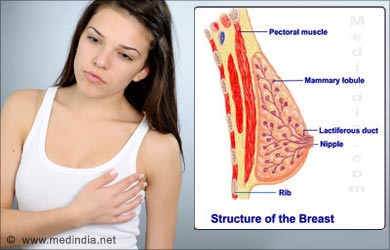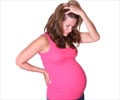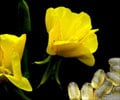- Mastalgia. SOGC Clinical Practice Guideline. J Obstet Gynaecol Can 2006;28(1):49-60
- Breast Lumps and Pain Overview - (http://www.emedicinehealth.com/breast_lumps_and_pain/article_em.htm)
- Why Do My Breasts Hurt? - (http://women.webmd.com/tc/breast-pain-mastalgia-topic-overview)
- Morrow M. The Evaluation of Common Breast Problems. Am Fam Physician. 2000 Apr 15;61(8):2371-2378.
About
Breast pain is seen more commonly in women of the reproductive age group. The pain may vary in different stages of the menstrual cycle.
Due to increased awareness of breast cancer, women tend to get alarmed with even slight symptoms related to the breast like breast pain. However, breast pain, or mastalgia as it is called, does not necessarily indicate cancer. In fact, in most cases, it is due to a non-cancerous cause.

The female breast undergoes changes during various stages of life under hormonal influences. Some amount of breast pain may be experienced at these different stages. The breasts develop during puberty with an increased deposition of fat. In this fat lie small glands called alveoli, which open into the nipple via ducts called lactiferous ducts. The alveoli further develop under the hormonal influences of pregnancy and delivery and secrete milk post delivery into the lactiferous ducts. Suckling by the baby stimulates milk production. The breasts may reduce in size following menopause.
Mastalgia is reported more commonly by women in the reproductive age group. Diagnosis of the cause of breast pain is done based on the type of pain, its location and relation to the menstrual cycle. Conditions like menstrual irregularity, emotional stress and medication changes can trigger or worsen breast pain and should be inquired into.
After ruling out that the breast pain is not caused by a serious condition, the doctor may decide to treat it depending on its severity and how often it occurs, especially if it interferes with day-to-day activities of the patient.
Breast pain is of two types, cyclic and noncyclic:
Cyclic Mastalgia: Cyclic mastalgia is associated with the menstrual cycle. It may be a result of the hormonal changes seen around mensis. Features of cyclic mastalgia include:
- The condition usually affects younger women.
- The pain is most severe just before mensis.
- It affects both breasts and is often described as a feeling of heaviness and soreness in the breast with pain that spreads to the armpit and arm.
- The pain usually disappears after the mensis.
- Cyclic mastalgia usually subsides on its own without treatment.
Noncyclic Mastalgia: Noncyclic mastalgia is unrelated to the menstrual cycle. Features of noncyclic mastalgia include:
- It usually affects slightly older women between 40 to 50 years of age.
- It usually affects a single breast.
- The pain may be described as a sharp, burning pain localized in the breast.
- It may be caused by other conditions like breast cyst.
- The pain is relieved following treatment of the underlying condition.
Causes
Causes of breast pain vary from cysts, infections, injuries to cancer.
Some causes of breast pain are:
Fibrocystic Changes: Fibrocystic changes in the breast may appear as thickening of fibrous tissue, which may disappear on their own. Small lumps called fibroadenomas may occur along with the fibrocystic changes of the breast. The lumps feel rubbery and are movable. Fibrocystic changes of the breast are usually harmless.
Breast Cysts: Breast cysts are well-demarcated collections of fluid within the breast. These may be tender, especially before mensis.
Breast Infection: Mastitis or breast infection commonly occurs during breast-feeding. The woman shows symptoms of pain, redness, swelling and increase in temperature of the breast. The nipple may also show the presence of some cracks. In some cases, the infection may be localized to a part of the breast, resulting in the formation of an abscess. Breast infection may be accompanied by nipple discharge and/or fever.
Injury to the Breast: Injury to the breast may follow trauma or after breast surgery.
Medications: Use of estrogens can cause breast pain. Other medications that have been associated with breast pain are digoxin, methyldopa, spironolactone, oxymetholone and chlorpromazine.
Shingles: Shingles or herpes zoster may affect the nerves over a breast. The patient experiences shooting pain along the nerve, accompanied by a rash along the course of the nerve.
Costochondritis: Costochondritis is inflammation of the cartilage where a rib joins the breast bone. It may appear to the patient that the pain arises from the overlying breast. A careful examination can detect the exact source of the pain.
Breast Cancer: Breast pain associated with the presence of a lump in the breast should be investigated for cancer. Of note, breast cancer often occurs without pain, so any breast lump should be investigated for cancer irrespective of the presence or absence of pain.
Frequently Asked Questions
1. Which doctor should I visit in case I suffer from breast pain?
You may visit a gynecologist or surgeon in case you suffer from breast pain.
2. What are the tests done for breast pain?
Your doctor will examine your breasts to rule out the possibility of any lumps associated with the pain. In case you are over 35 years of age, your doctor may advise you to undergo a mammography.
3. What are the medications used to treat breast pain?
Most people need only reassurance that their breast pain is not caused by a cancer. Supplementation with evening primrose oil has been found to be effective. Over-the-counter painkillers also help to relieve the pain. Drugs like danazol, bromocriptine and tamoxifene are available for the treatment of breast pain. However, they do have side effects and their use should be limited to severe cases only. Avoiding caffeine, supplementing vitamin E, and high fat foods may be beneficial, though there is no adequate proof for the same. A well-fitting bra provides support to the breasts and can reduce the symptoms of breast pain.











